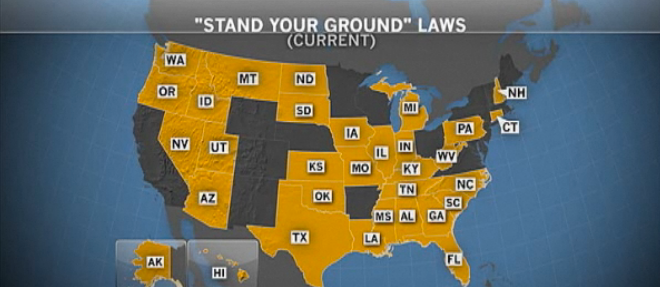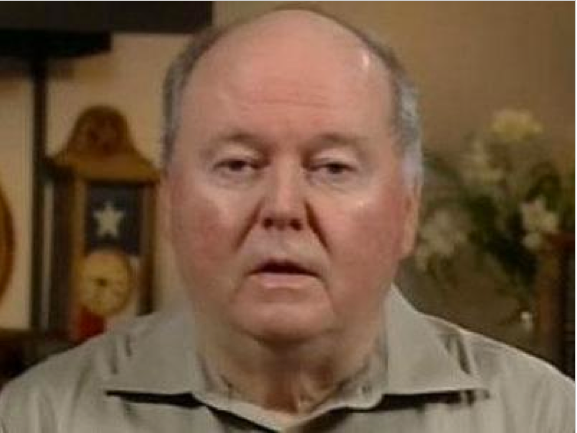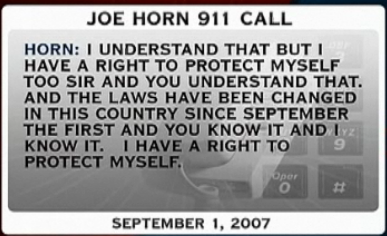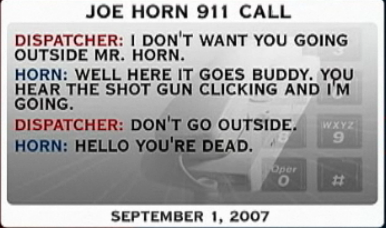What has become of this country. Republicans demand amendment 2 rights. Democrats too scared to do anything about gun laws. And the NRA gift giving to the right is astounding. Oh I am sure the left get their booty also, but not quite as much. Stand your ground in 22 states is a law to open fire and kill anyone who is not white. And get away with it. I am ashamed of Congress, I am not happy with the President not taking a stand, and doubling down. I hate the saying GUNS DO NOT KILL, PEOPLE DO. Well, if there were no guns people would not be able to shoot. I understand there are avid hunter out there, but when is too much, how many guns do a person need.
Sun Apr 01, 2012 at 03:05 PM PDT
Sun Apr 01, 2012 at 03:05 PM PDT

While the overall homicide rate in the U.S. is declining, "homicides in self-defense nearly doubled from 2000 to 2010, driven by states with 'stand your ground' laws." After Florida enacted its SYG law, ALEC (American Legislative Exchange Council) used the Florida statute as a model for states across our nation.
The problem is that some officials of our "justice system" interpret SYG laws as determined by the subjective test of whether or not the killer says (s)he felt threatened or endangered. Whether or not the gunman feels threatened or endangered can itself be guided by racist stereotypes and bias that can yield unreasonable fear based on hate. An online commenter recently exemplified how fear can be based on the very hate that this commenter denies when he or she stated that hate crimes are really fear crimes:
A HATE CRIME OR A "FEAR CRIME?"
I don't think a lot of these crimes are hate, per se, as much as fear. I know that I would be afraid of these "gangsta" type young black men, and so many of the criminals we see on the news, in the paper, etc., seem to be black. If I were to shoot one, it would be purely out of fear--no hate involved.
 In 2007, Joe Horn called the 9-11 operator in Pasadena, Texas to report two burglary suspects at his neighbor's house.
Horn advised the 9-11 operator at the beginning of his call that he had
a shotgun, and asked if he should stop the two burglary suspects. The
operator said no. In response to a question, Horn identified the men as
"two Black males." Horn said hurry up and get here cause "I'm not gonna
let them get away with this shit." We heard the same from Zimmerman, and
these two men are not the only ones.
In 2007, Joe Horn called the 9-11 operator in Pasadena, Texas to report two burglary suspects at his neighbor's house.
Horn advised the 9-11 operator at the beginning of his call that he had
a shotgun, and asked if he should stop the two burglary suspects. The
operator said no. In response to a question, Horn identified the men as
"two Black males." Horn said hurry up and get here cause "I'm not gonna
let them get away with this shit." We heard the same from Zimmerman, and
these two men are not the only ones.Horn was warned 14 times to not go outside in this video of his complete 9-11 call:
Horn said the laws have been changed in this country and he has a "right to protect myself."

Horn was in his house. The burglary was in the house next door. The 9-11 operator was keeping Horn on the phone until the police arrived. The burglars never approached Horn or tried to enter his home. How in the world is Horn's decision to load his shotgun, leave his home, and confront the burglars at his neighbor's house somehow an exercise of protecting himself.
When Horn saw the burglars coming outside the window of his neighbors' house, he went outside with his shotgun to kill both of them. His tone of voice cocky and arrogant, Horn stated: "Hello you're dead."

Next you hear the shotgun fire as Horn shot each man in the back.
"Horn was not taken into custody after the shooting." Under Texas law, "people may use deadly force to protect their own property or to stop arson, burglary, robbery, theft or criminal mischief at night." A grand jury concluded that Horn's killing of Diego Ortiz, 30, and Hernando Riascos Torres, 38, was a "justifiable use of deadly force and not murder." Horn's attorney said Joe was "trying to help the police. He was put in a situation where he didn't have any choice." Right. Horn had the choice to stay inside his home until the police arrived to do their job.
Similar to Florida legislators now claiming that their SYG law does not apply to Zimmerman hunting down and killing Trayvon Martin, the legislator who wrote the Texas law stated it "was never intended to apply to a neighbor's property, to prompt a "'Law West of the Pecos' mentality or action." Former Gov. Bush made similar statements about the Florida law regarding the Trayvon Martin case, but he signed the measure into law "despite explicit and repeated warnings that people of color and young people would be unreasonably and disproportionately harmed by the law."
Florida law provides that the gunman "has no duty to retreat and has the right to stand his or her ground and meet force with force, including deadly force if he or she reasonably believes it is necessary to do so to prevent death or great bodily harm to himself or herself or another, or to prevent the commission of a forcible felony." John Nichols, who has been reviewing and writing about stand your ground laws, explained that the "interpretation goes to the gunmen. The person with the gun can say I felt threatened. I felt that I was endangered…. If the shooter says he felt endangered or felt threatened, they are protected [with immunity] from prosecution." That is, the standard used of reasonable belief is the gunman's subjective belief that (s)he is threatened or endangered, a claim of his/her "fear of great bodily harm." Florida state Senator Steve Geller warned that the SYG law "ran the risk of encouraging Floridians to think that 'you ought to be able to kill people that are walking toward you on the street because of this subjective belief that you’re worried that they may get in a fight with you.'"
This is what the Florida police said in the case of Trayvon Martin. As Chris Hayes summarized: "The reason that they did not arrest Mr. Zimmerman was because Florida's Stand Your Ground Law explicitly bars arresting a person if the person credibly claims that they did what they did because they feared for their life."
Last month, in Florida, a judge, citing the SYG law, said that a "man charged with murder had no choice but to defend himself with lethal force against a burglar that he had chased down." Greyston Garcia was held immune from prosecution for the killing of Pedro Roteta.
¬
Garcia caught Roteta "rummaging through his truck and stealing its radio." Garcia grabbed a knife and chased Roteta for more than a block before stabbing him to death in a confrontation in which Garcia claimed Roteta "swung a bag filled with three stolen car radios at Garcia's head." A medical examiner conceded that a 4-6 pound bag of metal swung at a head could lead to serious bodily injury or death.
Garcia was not exactly a reliable witness. He changed his story, first denying involvement until he was shown a surveillance video of the confrontation. Garcia also claimed Roteta had a screwdriver in his hand but then admitted that he did not see a weapon but "feared for his life when the bag of radios was swung at him."
While the police believed that Garcia was a vigilante, the judge found that he was "well within his rights to pursue the victim and demand the return of his property . . . the defendant had no duty to retreat and could lawfully pursue a fleeing felon who has stolen his property."
The judge also did not care that Garcia "did not call police or 911, but went home and fell asleep. He later sold two of the car radios and hid the knife."
A Miami-Dade State Attorney plans to appeal this decision on the grounds that the judge abused her discretion to interpret the SYG law to authorize deadly force to chase someone to retrieve your property.
As can easily be seen in these examples, the attitudes of some of our citizenry plus the failure of police, prosecutors and judges to lean hard on people acting outside the spirit of the law are proof that such laws as currently written are bad in and of themselves. That's because such laws will inevitably lead to this abuse, have led to it, and to the failure of the criminal-justice system to curtail it. The law, in practice, creates a legal justification for killings that are scandalously unjustifiable.
No comments:
Post a Comment